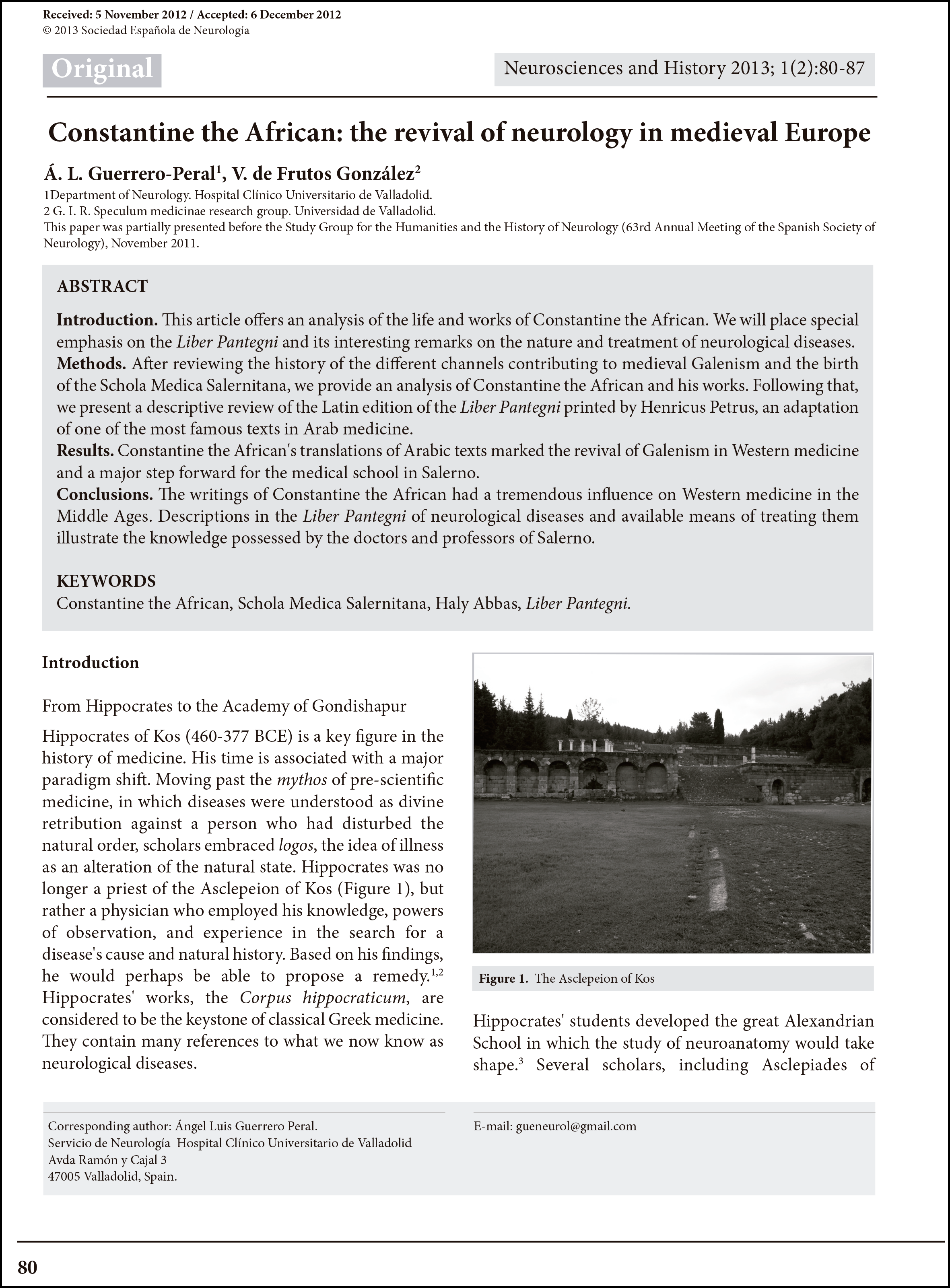
Volume 12
Num. 1 | January-March 2024
Num. 2 | April-June 2024
Num. 3 | July-September 2024
Num. 4 | October-December 2024

Volume 11
Num. 1 | January-March 2023
Num. 2 | April-June 2023
Num. 3 | July-September 2023
Num. 3 | October-December 2023

Volume 10
Num. 1 | January-March 2022
Num. 2 | April-June 2022
Num. 3 | July-September 2022
Num. 4 | October-December 2022
Available Now!
Issue 4 of Neurosciences and History is now available. Don’t miss the opportunity to read our latest research articles on the history of neurology.
Browse Volume 12Issue 4 belongs to Volume 12, 2024.
Browse volumes and issues in the “latest issues” section

Guardar
Guardar
Constantine the African: the revival of neurology in medieval Europe
 Á. L. Guerrero-Peral, V. de Frutos González
Á. L. Guerrero-Peral, V. de Frutos GonzálezNeurosciences and History 2013;1(2):80-87
Type of article: ORIGINAL
AUTHORS
Á. L. Guerrero-Peral1, V. de Frutos González2
1Department of Neurology. Hospital Clínico Universitario de Valladolid.
2G. I. R. Speculum medicinae research group. Universidad de Valladolid.
ABSTRACT
Introduction. This article offers an analysis of the life and works of Constantine the African. We will place special emphasis on the Liber Pantegni and its interesting remarks on the nature and treatment of neurological diseases. Methods. After reviewing the history of the different channels contributing to medieval Galenism and the birth of the Schola Medica Salernitana, we provide an analysis of Constantine the African and his works. Following that, we present a descriptive review of the Latin edition of the Liber Pantegni printed by Henricus Petrus, an adaptation of one of the most famous texts in Arab medicine.
Results. Constantine the African's translations of Arabic texts marked the revival of Galenism in Western medicine and a major step forward for the medical school in Salerno.
Conclusions. The writings of Constantine the African had a tremendous influence on Western medicine in the Middle Ages. Descriptions in the Liber Pantegni of neurological diseases and available means of treating them illustrate the knowledge possessed by the doctors and professors of Salerno.
KEYWORDS
Constantine the African, Schola Medica Salernitana, Haly Abbas, Liber Pantegni.
Neurosciences and History 2013;1(2):80-87
Editorial Secretary
Neurosciences and History
Archivo Histórico de la Sociedad Española de Neurología
C/ Casp, 172, 1A 08013 – Barcelona
Tlf.: +34 933426233.
E-mail: archivo@sen.org.es







